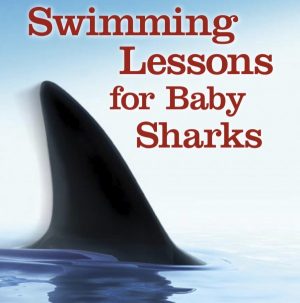Swimming Lessons For Baby Sharks: Practical Advice For New Lawyers
In recent years, lawyers have become more adept at managing social media accounts

This month, in light of the Roseanne tweet fiasco, I am changing the usual Q&A format of my column to address some of the other lessons for lawyers from the debacle. The main lesson, of course, is don’t be offensive or demean people. Hopefully, that needs no further explanation.
I spend significant time teaching about strategies lawyers can use to exercise good judgment, build relationships and enhance their trust and credibility. From that perspective, the Roseanne incident provides a case study of actions to avoid. The analogy is not perfect, because the Twitter incident was extreme. But there are still some important lessons.

Navigating Financial Success by Avoiding Common Pitfalls and Maximizing Firm Performance
Here are key reminders:
- Bungling social media can still get you fired. In recent years, lawyers have become more adept at managing social media accounts. One of my favorite sayings has been, “What happens in Vegas stays on Facebook.” But generally, there are fewer Facebook fails as people understand and use Facebook controls and are more circumspect about posting. The same is true for Twitter and other platforms. But regardless of the platform, as a lawyer you represent your employer’s brand. It is still a good rule to assume that everyone will see what you post. (And follow your employer’s social media policies.)
- Own mistakes immediately. Barr’s first tweet using the word “apology” came about six hours after her original tweet. Under the circumstances, that was an eternity. A firestorm was already raging. The analogy is not perfect here, because Roseanne did not make a garden variety “mistake.” But it’s important to remember that the longer issues languish, the worse they become. If you screw up, own it immediately.
Sponsored

Generative AI In Legal Work — What’s Fact And What’s Fiction?


Legal AI: 3 Steps Law Firms Should Take Now

Is The Future Of Law Distributed? Lessons From The Tech Adoption Curve

Legal AI: 3 Steps Law Firms Should Take Now
- No excuses. Barr’s later tweets garnered more criticism. The initial “apology” was for making a joke in bad taste. Later, Barr blamed Ambien. That opened the door for Sanofi, the maker of Ambien to retort, “While all pharmaceutical treatments have side effects, racism is not a known side effect of any Sanofi medication.” The problem with excuses is that they can lead others to think you don’t understand the problem – and can’t or won’t fix it. Excuses also invite the listener to question the validity of your explanation.
- Make amends. Actions speak louder than words, and if you make a mistake practicing law, focus on a solution. Apologies may be appropriate, but they are rarely enough. When someone bungled a project and offered up, “I’m sorry,” a former colleague would often reply, “Sorry did not do it.” If you have made a mistake on a project, I recommend discussing the issue in person. That shows you take the matter seriously, and a face-to-face meeting will give you more information about the impact of your mistake. Come ready with a solution or show that you will work on a solution in earnest. Here, Barr tweeted her apology without more – except for a promise to stay off Twitter. Even that promise did not last long. Would a call to Valerie Jarrett have helped? Would a large contribution to a charity have helped? Perhaps.
Sponsored

The Business Case For AI At Your Law Firm


Navigating Financial Success by Avoiding Common Pitfalls and Maximizing Firm Performance
- As a lawyer, your words must be intentional. They need to be strategic – to help your clients achieve their goals. That means no off-the-cuff remarks. Get in the habit of reflecting on your words and actions – in advance. Take a momentary pause. Ask yourself how you will be perceived, whether you should say or do anything at all, or whether there is a better course of action. Studies have shown that a momentary pause increases decision quality. Take your time. And identify times that it is difficult for you to pause. Recognize your “triggers” and come up with a plan. Bite your tongue. Turn your phone off. Whatever.
Join the conversation by submitting questions on Twitter @Babysharklaw or here. Get the new Second Edition of Swimming Lessons for Baby Sharks here.
Grover E. Cleveland is a Seattle lawyer, speaker and author of Swimming Lessons for Baby Sharks: The Essential Guide to Thriving as a New Lawyer (West 2d. 2016). Grover specializes in programs to help new lawyers successfully transition from law school to practice, helping them provide more value and avoid common mistakes. He is a former partner at Foster Pepper PLLC, one of the Northwest’s larger firms. His clients included the Seattle Seahawks and other entities owned by Microsoft co-founder, Paul Allen. Grover is a frequent presenter on lawyer career success and generational issues at leading law firms and schools nationwide. Many questions in this column come from those programs. Readers may submit questions here or follow him on Twitter @Babysharklaw. He is not related to the 22nd and 24th President of the United States.







